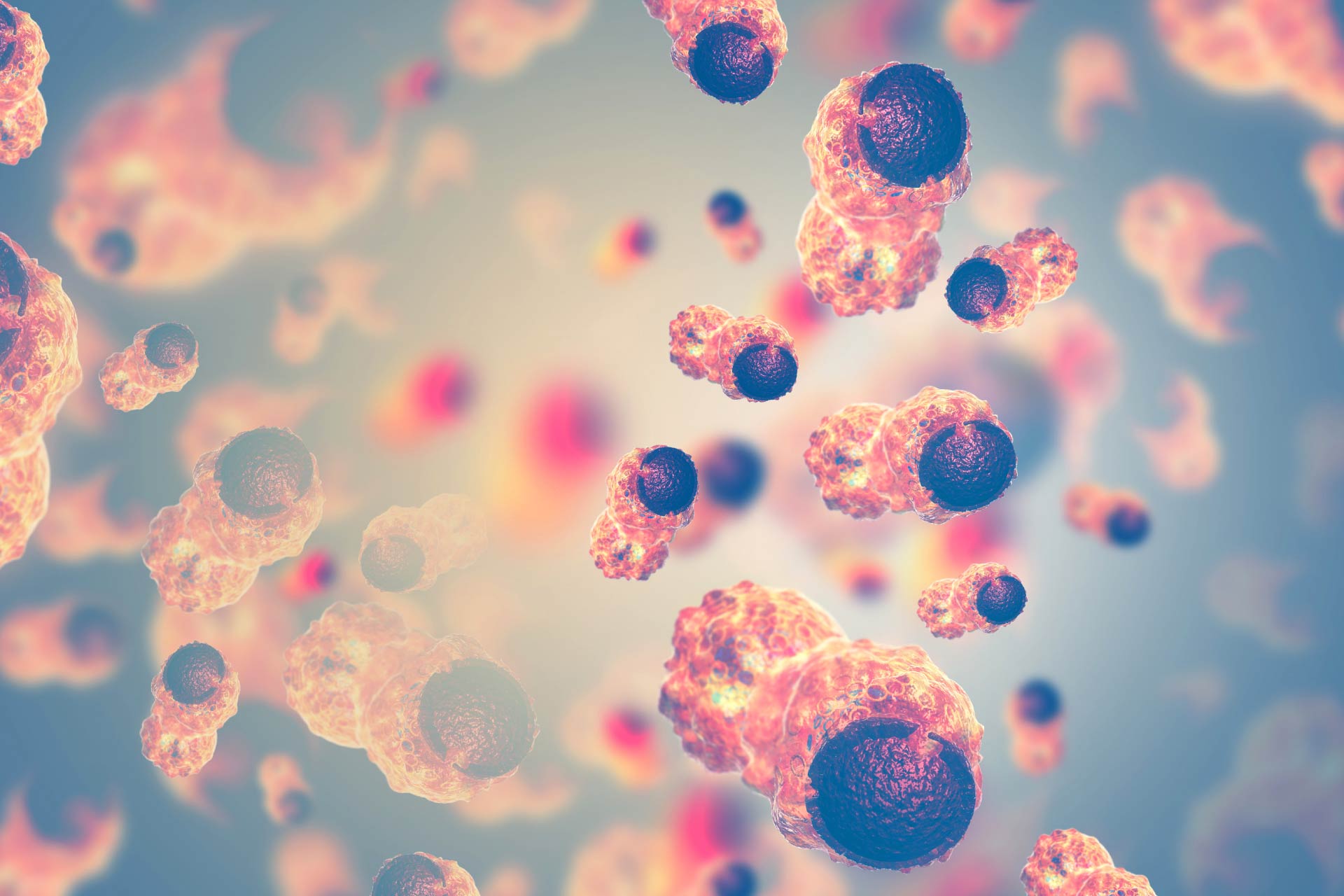• Microbiota pills
• Microbial signature
What is already known on this topic
Checkpoint inhibitors are a class of anti-cancer drugs — known as cancer immunotherapies — that work by unleashing a person’s immune system against tumor cells. Combining two of these drugs has shown promise in treating several types of cancer. However, this type of combined immunotherapy can also cause immune-related adverse events such as a severe inflammation of the gut. Biomarkers that help tell who is most likely to experience severe side effects are currently lacking.What this research adds
Researchers profiled the blood, tumor, and gut microbiota of 77 patients with advanced melanoma treated with combined immunotherapy. They found higher gut levels of Bacteroides intestinalis in individuals who experienced adverse side effects than in those who didn’t. An increased abundance of B. intestinalis was associated with higher levels of a specific pro-inflammatory molecule in the gut. Inhibiting the receptor of this molecule in the intestine of mice reduced inflammation without affecting the efficacy of the combined therapy.Conclusion
The findings suggest that inhibiting specific receptors of inflammatory molecules or manipulating the gut microbiota could be used as a new strategy to treat toxicity to combined immunotherapy — without affecting the treatment’s efficacy.
Combining two types of anti-cancer drugs known as cancer immunotherapies has shown promise in treating several types of cancer, but the approach can also cause severe side effects. Now, researchers have found specific gut microbiota signatures that are linked to adverse events in response to combined immunotherapy.
The findings, published in Nature Medicine, suggest that inhibiting specific receptors of inflammatory molecules or manipulating the gut microbiota could be used as a new strategy to treat toxicity to combined immunotherapy — without affecting the treatment’s efficacy.
“This study further highlights the importance of the gut microbiome in both response as well as in toxicity in patients being treated with combined immune checkpoint blockade,” says study senior author Jennifer Wargo at the MD Anderson Cancer Center. “We’re committed to understanding and addressing the significant immune-related side effects that tend to accompany this combination therapy, so that patients don’t have to compromise quality of life for effective cancer treatment.”
Checkpoint inhibitors are a class of anti-cancer drugs that work by unleashing a person’s immune system against tumor cells. Combining two of these cancer immunotherapies can improve survival in various cancers. However, this type of combined immunotherapy can also cause immune-related adverse events such as a severe inflammation of the gut.
To find reliable biomarkers that help tell who is most likely to experience severe side effects, Wargo and her colleagues profiled the blood, tumor, and gut microbiota of 77 patients with advanced melanoma treated with combined immunotherapy.
Microbial signature
The researchers found higher gut levels of Bacteroides intestinalis in individuals who experienced adverse side effects than in those who didn’t. An increased abundance of B. intestinalis was associated with higher levels of a pro-inflammatory molecule called IL-1β in the gut of both mice and people.
Inhibiting the receptor of IL-1β in the intestine of mice reduced inflammation without affecting the efficacy of the combined therapy, the team found.
Analyses of the gut microbiota of mice and people with melanoma revealed that those with higher levels of the bacterium Parabacteroides distansonis tended to respond better to combined immunotherapy than did those with lower levels of the microbe. However, the diversity of the gut microbiota wasn’t substantially different between responders and non-responders.
Immune profile
The researchers also found that the immune profile of people who experienced severe adverse events showed a specific immune signature. In particular, these individuals had a more diverse repertoire of immune cells called T cells in their blood.
Tumor biopsies also revealed a higher density of a specific type of T cells — known as CD8+ cells — in responders compared to non-responders.
The findings suggest that inhibiting the receptor of IL-1β could be used as a potential therapeutic target for inflammation. “We’re getting closer to understanding which patients are most likely to benefit from checkpoint inhibitors and to identifying strategies to mitigate toxicity,” Wargo says. “We’re grateful to the patients who have participated in our ongoing research; they continue to motivate and inspire us as we undertake additional studies to build upon the insights from this research.”










